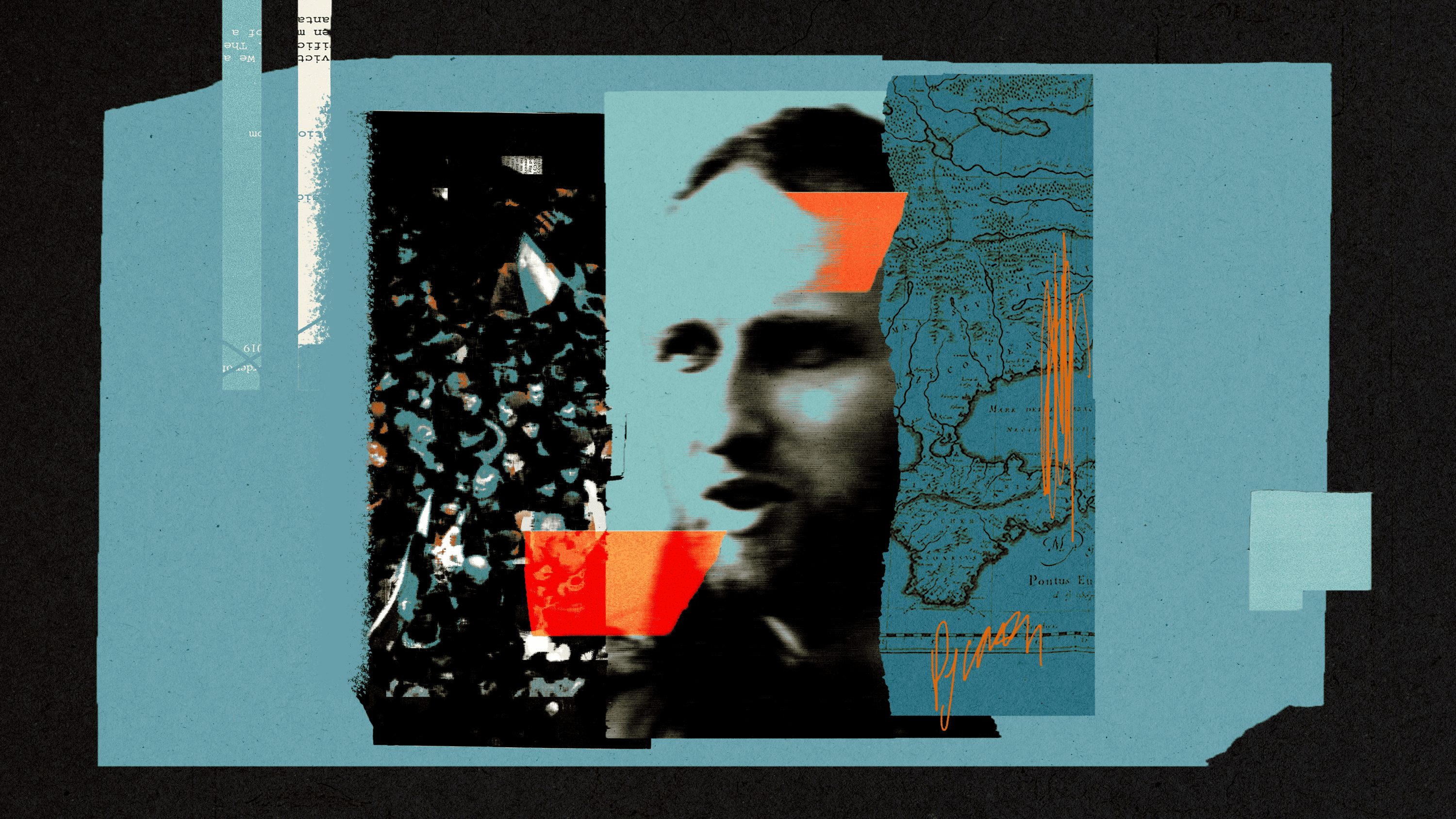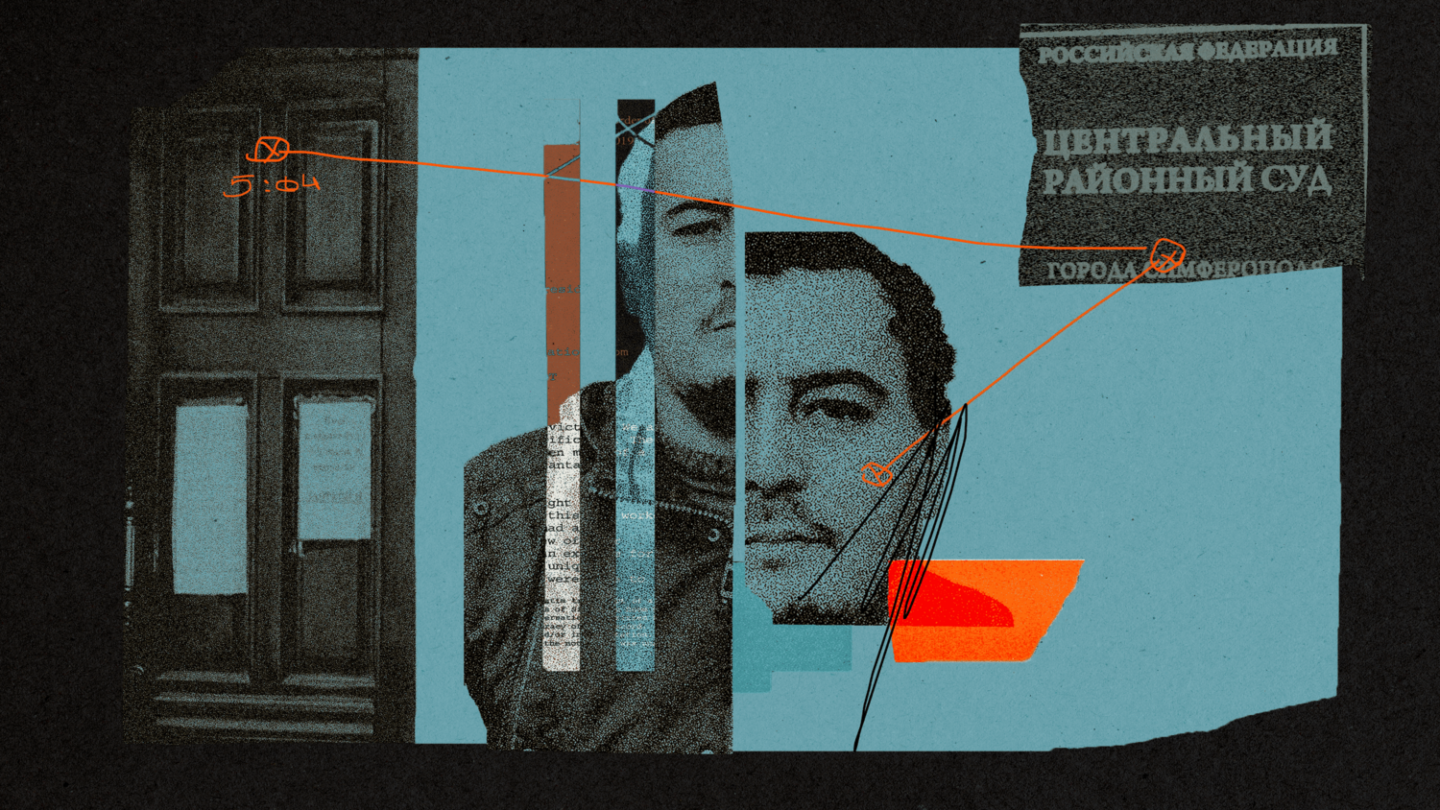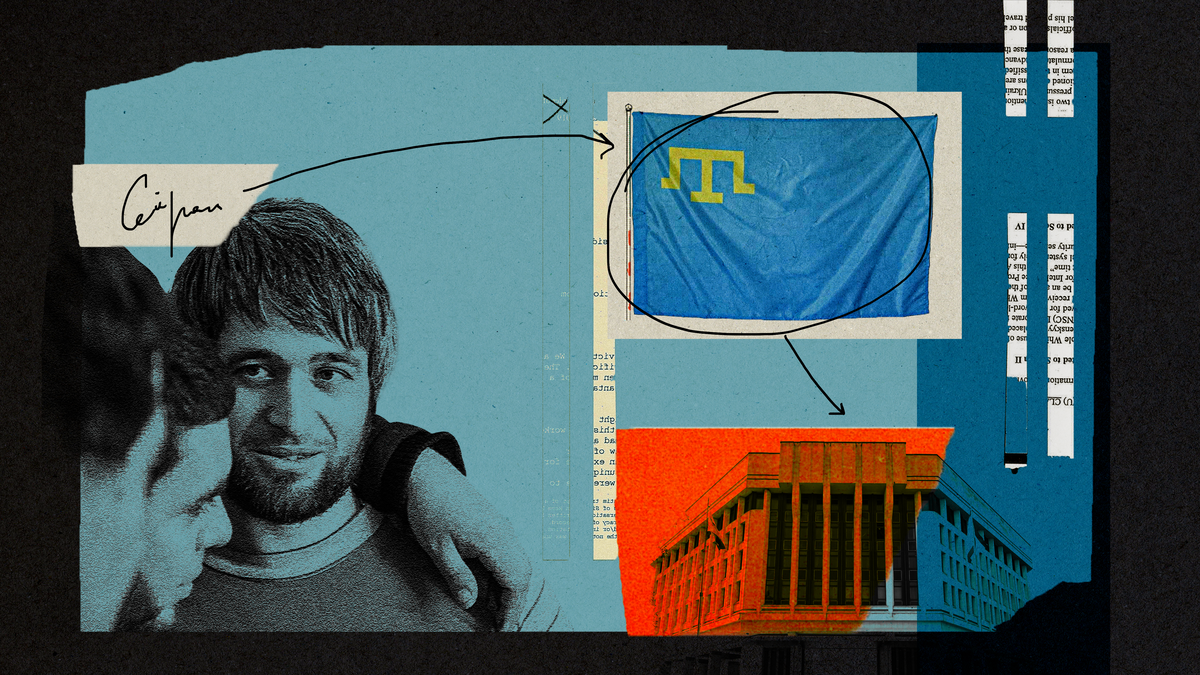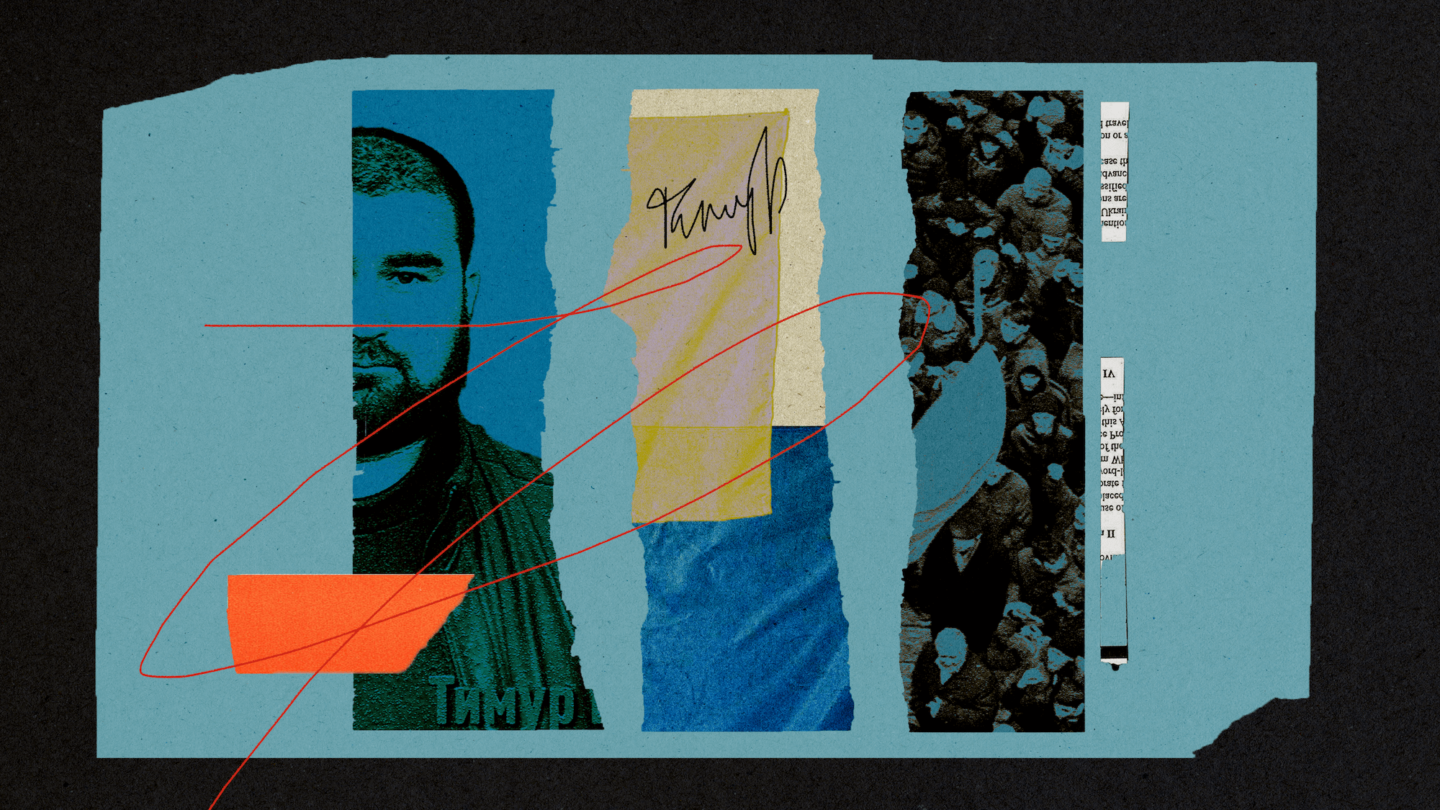Ruslan Suleymanov is a citizen journalist and activist of the Crimean Solidarity. He was born on April 21, 1983, in Uzbekistan. In 1993, Suleymanov’s family returned to Crimea, settling in the Bilohirsk district.
In 2000, Suleymanov graduated from Muromsk Secondary School with high honors. After school, he was admitted to Taurida National University and graduated in 2005 with a major in the Physics of Magnetic Phenomena. He worked as a programmer. After the occupation of Crimea, the international company where he was employed ceased operations on the peninsula. Suleymanov was offered the opportunity to move abroad to continue working, but he refused, wanting to stay in his homeland.
Since 2017, Suleymanov has been arrested several times for “unauthorized” protests against the persecution of Crimean Tatars.
On March 26, 2019, Russian border guards detained him at the Kalanchak checkpoint, and on March 28, he was arrested. Initially, he was charged with “organizing the operations of a terrorist organization” (Part 1 of Article 205.5 of the Russian Criminal Code), but the charges were later reclassified to “participating in the activities of a terrorist organization” (Part 2 of Article 30; Article 278 of the Russian Criminal Code).
On November 24, 2022, a court in Rostov-on-Don sentenced Suleymanov to fourteen years in a strict-regime penal colony. He is currently serving his sentence in a colony in the Chelyabinsk region, Russia.
Suleymanov and his wife Elzara have three children: Mukhammad, Asiya, and Musa. A year after Ruslan’s arrest, their youngest son Musa passed away.
§§§
With this narrative portrait, we launch a special project dedicated to the free voices of Crimea. This series of stories about journalists, now political prisoners, is a joint initiative of PEN Ukraine, The Ukrainians Media, ZMINA, and Vivat, supported by NED.
§§§
Eyes that shine from within
“Honest, kind, compassionate, someone you feel safe with,” says Elzara Sefirsha, describing her husband Ruslan Suleymanov. They met in 2008 through relatives.
“I was nineteen, and my family thought it was time for me to meet a good man,” recalls Elzara. “One day, my aunt was visiting the family of Emir-Usein Kuku [a Crimean human rights defender who in 2019 was sentenced by a Russian court to twelve years in a high-security prison, also for the Hizb ut-Tahrir case]. My aunt mentioned she had a niece and asked if they knew of any good man looking for a wife. Ruslan was just such a man. We were introduced, and I liked him the moment he stepped through our door. He had an incredibly pleasant smile and bright blue eyes that seemed to shine from within.”
After their wedding, they lived together for ten years but have now been apart for six. Elzara says she will never forget the first look from her husband:
“When I first saw him, his incredible light-filled eyes—it felt like I was filled with that light myself. I still feel that now, whether I look at him or at his photo. I saw a kind person in him, and I wasn’t mistaken,” says Elzara.
When the couple met and married, Suleymanov —a physics graduate—was no longer teaching in Simferopol but was working as a construction worker on Crimea’s southern coast. Elzara recalls that Suleymanov explained his career change quite simply: Unfortunately, combining his sincere faith in God with the pressures on educators in institutions where corruption thrived wasn’t possible. So, he made the choice based on moral principles.
At first, the family lived in a rented apartment near Alushta, where Ruslan worked. However, 2009 became a crisis year for construction, and the Suleymanovs moved to live with Elzara’s parents in the Sevastopol district, and later to Simferopol, where Suleymanov was invited to work for a Turkish firm as a programmer.
“He wrote games. He didn’t study programming formally, but his education in physics, his constant curiosity, and desire to learn and discover new things helped him master this new field. He really liked it. We were finishing building our house, doing renovations. We were living well, in harmony. That’s when our son Muhammad was born. We were happy,” Elzara says.
A year that changed everything
With the start of the Russian occupation, hundreds of foreign firms across the peninsula closed, and the lives of thousands of families were turned upside down. Crimean Tatar families, who had returned from deportation, worked hard to start life anew and, after many years, had finally managed to establish some stability, now faced the threat of poverty and imprisonment once again.
The IT company Suleymanov worked for also closed.
“They shut down in Crimea and invited Ruslan to move abroad to continue working. But he refused. He simply said, ‘How can I leave home, the home we waited for so many years to return to? What did our parents fight for? I’m not going.’ And I understood him,” Elzara recalls.
For Crimean Tatars, the question of whether to leave Crimea is not just a matter of everyday choice.
Suleymanov often told how he was born in a family deported to Uzbekistan, and as a child, he asked his parents to move to Crimea—so strong was his sense of homeland and justice.
The popular Crimean Tatar saying “Qırımda yaşa” [“Live in Crimea”] became a defining principle for the whole people, meaning that no matter where you are or what happens, you must return to your homeland and preserve your identity, passing it on to future generations.
Without a job, Suleymanov became a tutor, preparing students for university entrance exams and teaching physics. He loved this work because he loved children and always wanted to be a teacher. He had a gift for finding a unique approach to each child, sparking their interest in the subject, and coming up with creative presentations and educational games. Some parents admitted that their children, who previously hated physics, not only became interested in it after meeting Suleymanov but also made significant progress.
“One boy had no interest in learning physics at all, and his parents brought him to Ruslan. They said he needed the subject for university admission. Ruslan didn’t just help him prepare for exams. The student’s parents said their son would come home after lessons and tell them what he had learned, giving them mini-lectures—he was that fascinated. The parents were surprised, but I wasn’t, because I knew my husband—he could find a way to connect with anyone,” says his wife.
In 2014, the couple was expecting their second child. Doctors advised Elzara not to worry, but it was impossible for them to remain calm. During that time, people who spoke out against the Russian occupation of Crimea began to disappear. Some were arrested by Russian special services, others disappeared without a trace, and some were found dead or severely beaten. Life became dangerous.
2014 in Crimea was particularly significant in terms of arrests. As lawyer and human rights defender Emil Kurbedinov recalls, that year began with Russian authorities opening numerous administrative cases for those organizing and participating in protests: thousands of Crimean residents, mainly Crimean Tatars, protested against the prohibition on their leader, Mustafa Dzhemilev, from entering the peninsula.
“This immediately showed us what kind of environment we were in. For some time, police officers didn’t even know which laws to apply during detentions and arrests—Russian or Ukrainian. Then, for three months, the courts didn’t work at all, and when they resumed, they were issuing rulings in the name of the Russian Federation but with Ukrainian seals and the Ukrainian coat of arms. It was chaos. That’s when the kidnappings and disappearances without trial or investigation began,” Kurbedinov says.
Later, as the human rights defender explains, Russian authorities established a conveyor belt of detentions for all “inconvenient” citizens:
“After the chaotic 2014, this system became a powerful and repressive machine, functioning like a conveyor. Civilian people are detained, Crimean courts arrest them, and then they are taken to Rostov-on-Don, where they are tried by military courts—these so-called ‘military troikas,’ absurdly issuing heavy sentences for terrorism or treason and handing out long prison terms. Then, Crimeans are sent to high-security prisons across Russia.”
Being someone who took things to heart, Suleymanov couldn’t stand by idly.
“When the repressions and persecutions began, Suleymanov said it was all a great injustice, cruel, and dishonest toward our people. Our mutual friends—completely peaceful people, believers who had never harmed anyone—were arrested,” recalls Elzara.
The man who always wanted to teach children and never planned to be a civil activist now found himself at the center of the changes that swept over his homeland like a catastrophic tsunami. He called on relatives and friends to unite, support each other, not disregard what was happening, and never leave friends alone in their time of need.
Not standing aside
At the beginning of 2015, Russian security forces arrested the so-called “Sevastopol group”—Ruslan Zeitullaev, Nuri Primov, Rustem Vaitov, and later, Ferat Saifullaev. Ferat, Elzara’s cousin, was accused of being a member of Hizb ut-Tahrir. Later, the men were sentenced to five to seven years in a high-security colony, and the Russian human rights organization Memorial recognized all four as political prisoners.
“My husband and I attended court hearings, tried to support the arrested men and their families.
It was especially hard for the women—sending care packages, standing in queues, fighting for visits, while also taking care of children and elderly parents. What extremism? What had they done? It was horrifying. Our life was never safe or happy again.
There was always a constant sense of danger and threat,” Elzara recalls.
After that, Suleymanov became a citizen journalist, joining the Crimean Solidarity. He regularly attended court hearings in political prisoner cases, covered protests and pickets, and posted on social media about what was happening in Crimea, exposing the unjust arrests and persecutions.
On the morning of February 21, 2017, in Simferopol, Crimean resident Marlen Mustafayev was arrested, accused of “displaying Hizb ut-Tahrir symbols on social media,” which he allegedly did back in 2014. During the search of his home, ten activists, including Suleymanov, came to support Mustafayev’s wife and their four-month-old daughter and to report on the arrest of the public activist. All ten were arrested and charged with the “violation of the rules of holding rallies.” The men were sentenced to five days in detention, marking Suleymanov’s first arrest.
Elzara recalls how Ruslan often explained that if he did not support others, it would seem as though he agreed with the injustice and that, over time, society would start to forget about these crimes and persecutions, and eventually accept this horrific situation as normal:
“If I stand aside, how will I look my friends, relatives, their wives, and children in the eye?” Suleymanov said.
At the same time, Suleymanov was well aware of the risks he was taking by helping others, and, therefore, told Elzara that she should be prepared for his arrest. The family constantly helped the relatives of the imprisoned, caring for the more vulnerable, even though they themselves had three children and many family concerns. On October 15, 2017, Suleymanov held a solo picket in support of the arrested Crimean Tatars. This time, he was fined 10,000 rubles.
Suleymanov and his family knew very well how searches and arrests were carried out—too well, in fact, because after several years of constant persecution, they had many close acquaintances who had been arrested. Russian security forces always came before dawn, broke down doors, walked everywhere with weapons, rummaged through every corner of the house, scared the children, and spoke to the owners with disdain and rudeness.
“We were mentally preparing ourselves for the fact that we would end up in the place of these innocent people, but of course, we hoped for the best. And how can one even prepare for something like that? I was most worried about the children: During the searches, they are usually the most frightened,” says Elzara.
They came to their house with a search after Suleymanov had already been arrested at the Kalanchak checkpoint—this was in May 2019. Then there was a second search, and later the FSB came to Suleymanov’s brother Eskender, who lived in the second half of their shared house along with their parents. Because of this, the children went through severe stress several times.
“For our family, what dozens of other families had already experienced began. But we had to hold on and help each other,” says Elzara.
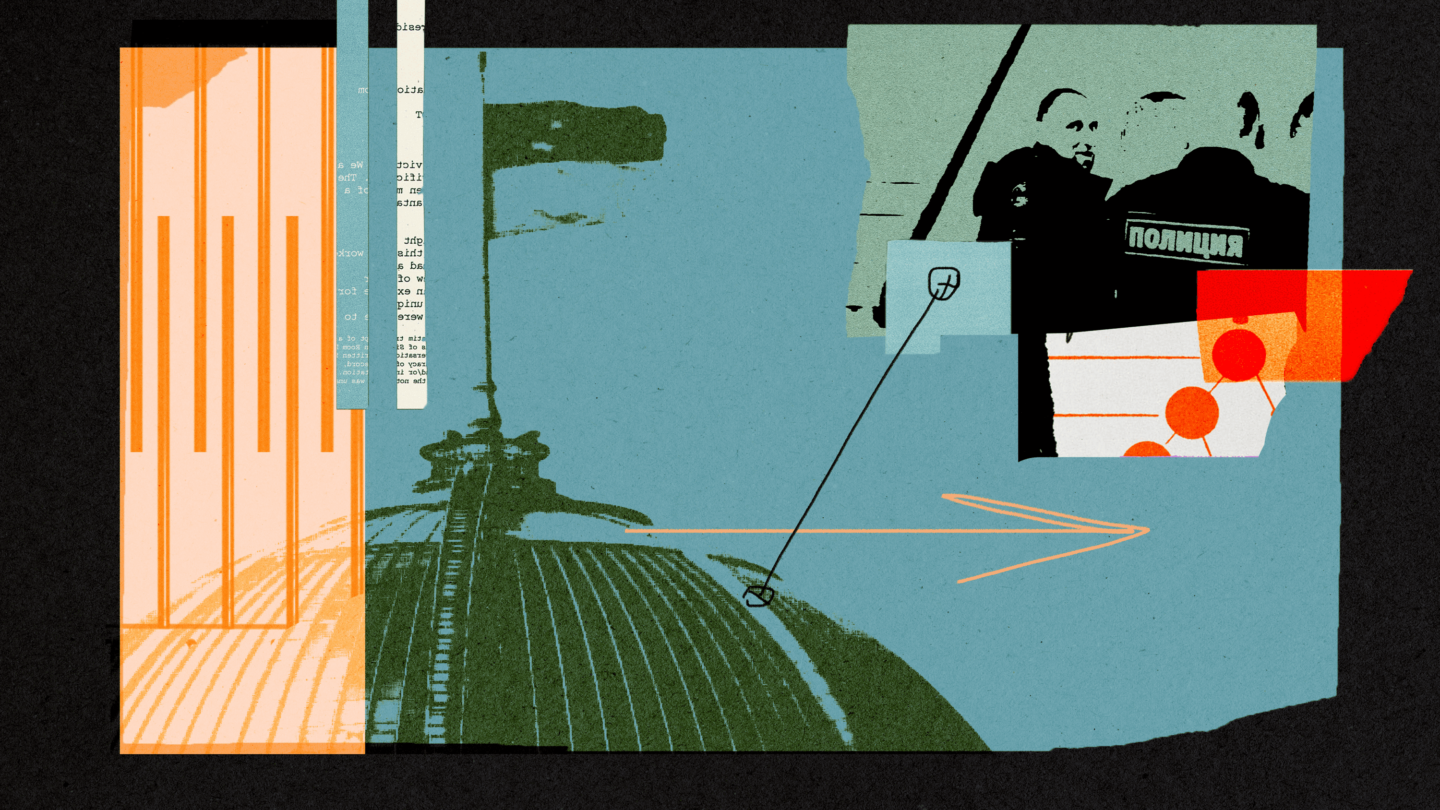
Tragedy
Less than a year after Suleymanov’s arrest, another tragedy struck the family. In July 2020, his youngest son, three-year-old Musa, disappeared. He was playing in the yard while Elzara had stepped away for a few minutes to help her husband’s sick mother. The search for the child lasted two days, and over 8,000 Crimean residents—both Crimean Tatars and others—responded to the call for help.
Despite the terror Elzara felt during the search, the FSB forced her to take a polygraph.
Russian security forces suspected that the family had deliberately hidden the child to draw attention to Suleymanov’s case, and when he was informed of the child’s disappearance, he could only pray and wait for news in his prison cell.
Two days later, the boy was found dead in a septic tank. Despite the official version of the investigation, which claimed the death was an accident, human rights activists blame the Russian authorities, who unjustly detained the child’s father, leaving the mother to raise three children and care for her husband’s sick parents alone, without any help or support. On the same evening when Musa was found dead, Ukrainian President Volodymyr Zelenskyy addressed Russian President Vladimir Putin, calling for Suleymanov’s release, but Suleymanov was not even allowed to attend his son’s funeral.
“I held out hope until the last moment that my son would be found alive and unharmed. With each new update, when the dangerous search areas were cleared, my hope grew stronger. But the inevitable happened. Yes, Musa was with our family for three years—not long, but I am deeply grateful to the Almighty for giving us such a wonderful son. The loss is heavy and irreparable. I now understand what parents who have lost children without a trace go through, holding onto hope that one day they will return,” Suleymanov later wrote in one of his letters to the public.
Unity of the people
Almost immediately after his arrest, Suleymanov was taken from Crimea to Rostov-on-Don in Russia, along with twenty-two other Crimean Tatars who were similarly accused of participating in the Hizb ut-Tahrir organization. Separation from family, difficulties accessing necessary medication, and complications in delivering clothing and food all became the harsh new reality for the activist. But he did not give up.
“I’ve always admired that even in the harshest conditions, he never despaired, never became a recluse, never lost hope. I can’t imagine how hard it is for him there, how lonely he must feel. But he always tells me: ‘I don’t have time to be bored; I have so much to do.’ What kind of tasks? He reads everything available in prison, continues his self-education, writes articles, and works on self-improvement. It’s easy to say, but you can only imagine the strength of spirit needed for that,” says his wife.
During the first year in the detention center, Suleymanov was not only prohibited from seeing his relatives but also from making phone calls. He saw his wife and daughter Asiya, who was born in 2014, only once during a court session, but the guards did not allow them to approach him.
“We couldn’t talk to him in the courtroom, and they also forbade phone calls. In the courtroom, they constantly tried to block him from our view with their backs, so we couldn’t even see his eyes. But we saw everything we needed to—sometimes not with our eyes, but with our hearts,” recalls Elzara.
Suleymanov often said that he felt particularly strongly about any injustice because he was part of a group of people who had faced oppression and destruction for centuries.
Moreover, like many other Crimean Tatars, he repeatedly mentioned the terrifying recurrence of history since 2014:
“Something similar was done to the Crimean Tatar people for 250 years, first by Tsarist Russia, then by Soviet authorities. My people, we today need to be aware of the events happening so we are not deceived. We need to expose the lies, to be united, and not leave one another in hard times. As one of our people’s sayings goes, ‘Water wears away the stone,’” he wrote in a letter to the Crimean Solidarity in September 2021.
Suleymanov was held in pre-trial detention until the end of 2023. During this time, his health deteriorated several times. He repeatedly sought medical attention for a congenital heart defect, but according to his lawyer, Svitlana Oleksenko, the doctor only visited once and prescribed him an alcohol-based dead nettle tincture and glycine. When Suleymanov requested alcohol-free medications, the doctors claimed they had none, so he refused to take the tinctures.
Despite the harsh conditions in the detention center, the torture (including being constantly moved from one cell to another, usually solitary confinement, which is a method of torture known as the “carousel”), health problems, and lack of contact with his loved ones, Suleymanov continued to support others and constantly drew attention to the unjust persecution. He repeatedly wrote letters to human rights defenders and the public, emphasizing the need for solidarity, unity, and responding to every human rights violation in Crimea.
“The scariest thing isn’t the prison sentences awaiting us—some have already accepted them—but the fear of not being heard because, like other prisoners of conscience, I have something to say,” he wrote in a letter on October 9, 2020.
Finding the strength to hold on
After the sentence of fourteen years in a maximum-security colony was announced, Suleymanov was transferred to the Chelyabinsk region. The journey was difficult for the sick political prisoner, weakened by several years in pretrial detention without proper treatment, as it lasted a whole month. Later, he told his family that the prisoners traveled standing up in the wagons, and they were rarely given hot water and received little food. Now, he often falls ill because it’s very cold and damp in the north, and his body, used to the warm sea climate, is struggling to adjust.
“But he is holding on. He says he reads, and recommends books to me; for example, he advised me to read Shantaram. He loves us very much, and we love him very much. When the sentence was announced, we held back our tears, so as not to cause him pain. We tried to smile at him to support him. But how unjust it is!” says his wife.
Ruslan’s stance as a citizen journalist on the need to defend one another and not allow unjust silence about persecution has resonated deeply with many, so despite the hardships his family faces, they are strengthened by the unity around them.
“We haven’t learned to live without Ruslan, and we don’t intend to.
What pains me the most is the injustice. Because Ruslan is innocent.
He is the kindest person in the world—how could he be an extremist?” Elzara asks rhetorically.
According to her, the support of people gives her the strength to hold on. She says not only relatives and friends help but the entire Crimean Tatar people and Ukrainian activists:
“We likely wouldn’t have been able to withstand such trials if we had been left alone. Our people are very united, and we felt that when misfortune touched us. Even strangers from different parts of Crimea came to support us. We are grateful for that. We mustn’t lose heart, just like Ruslan. We all have to be strong. The children are growing up without their father, but one day they will meet, and that will be the warmest day. We dream of it every second,” the woman says.
This text was written in April–May 2024.
Translated by Yevheniia Dubrova.
